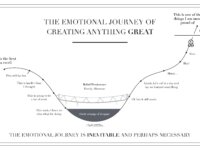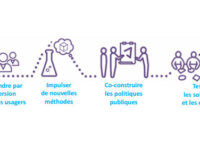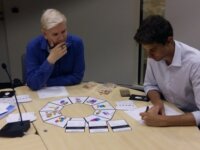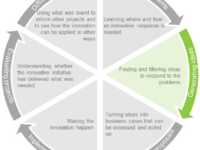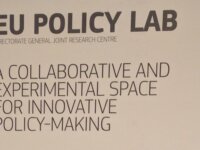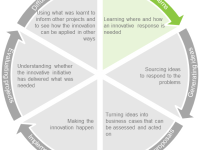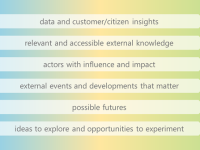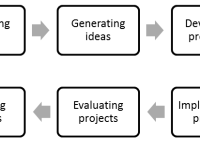When public sector innovation is talked about it can often seem like a new focus, or something that governments have only recently paid attention to. Yet on a recent holiday I had a reminder that governments have been innovating for a long time, and that many of the issues that we face today when innovating are not new. In this case the reminder was a Swedish naval vessel built early in the 17th Century. The...
Author: Alex Roberts
Have you ever felt bogged down or stuck when you were trying to introduce something new? When you just felt like it was easier to give up? At the start of an innovative project – whether it starts with a cool new idea, or with a problem that provides an opportunity to rethink how things are done – there can be a lot of energy and enthusiasm. The sense that things could be better, that...
This blog was co-authored with former OPSI intern, Théo Bourgery “What does innovation mean to you?” This is a common topic when you speak to public servants about innovation – what is it really about, what does it really mean. And it is always interesting to hear the different views and perspectives, and the degree to which the answers vary. Yet these differences in opinion are not mere curiosities – they matter and can have...
Wouldn’t it be great if you could play games at work? Sorry, I meant, wouldn’t it be great if you could play games at work and learn new skills at the same time? Here at the Observatory we’re interested in finding out more about how playing games can help public servants learn new ways of thinking and doing things. As part of our innovation lifecycle work, we want to better understand how to support public...
Have you ever heard the warnings “we shouldn’t innovate for the sake of it” and “innovation isn’t an end in itself”? In this somewhat contrarian post I’d like to suggest a different perspective, one that argues that innovation for its own sake is both: a) quite uncommon, as innovation usually serves a number of purposes, even if they are not always explicit; and b) not something to worry about even when/if it does happen, and...
Today we’re releasing our ‘alpha’ version of the report about the second stage of the innovation lifecycle – generating ideas. We’re looking for feedback and constructive critique about what might have been missed, what should not be included, what is useful and what is less so. We’d also like this work to reflect your lived experience as much as it can, so we also look forward to receiving any examples or stories that can illustrate...
How do countries get insight into the big issues that are affecting them, such as the refugee crisis or youth unemployment? How do they come up with new ways of seeing problems that allow for new ways of responding? On the 17th and 18th of October the European Commission hosted the event “Lab Connections: Policy Labs in Europe, for Europe” to look at one mechanism that is increasingly used by governments to come up with...
How does your organisation know when it needs an innovative response to a problem? How does it learn what the problems are? How does it learn for innovation? We are seeking your input on our ‘alpha’ version of a study on identifying problems and learning for innovation in the public sector. Public sector organisations are dealing with large and varied changes in their operating environment. Many traditional practices are no longer delivering the results that...
The work of the public sector is changing quickly to respond to a more complex, interdependent and hard-to-predict world. Are we, and the organisations we work in or with, ready to fully understand that change and convert that new understanding into knowledge and innovations that improves the lives of citizens? We hope to hear from you about your experience to inform our work. In my last post I wrote about OECD efforts to develop a...
How do you know why, when and how you should use a particular tool to get the best results? I’m working on the development of an Innovation Toolkit for public servants and I want to hear from you about how you choose between methods, and what information you need when you are using a new approach. Why an innovation toolkit? The work of public servants is changing. Traditional methods no longer guarantee the same results...


